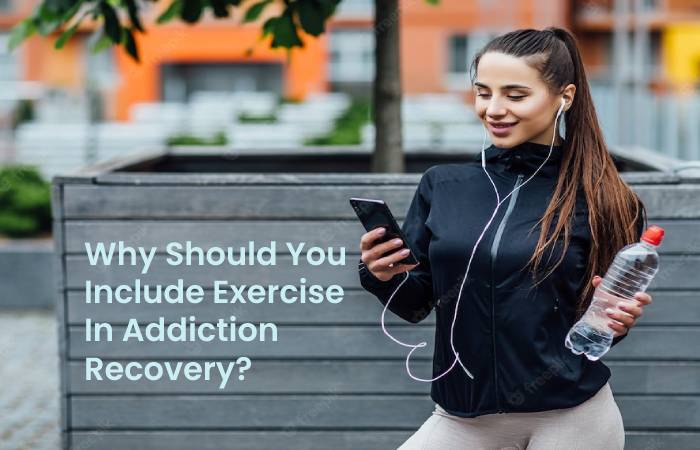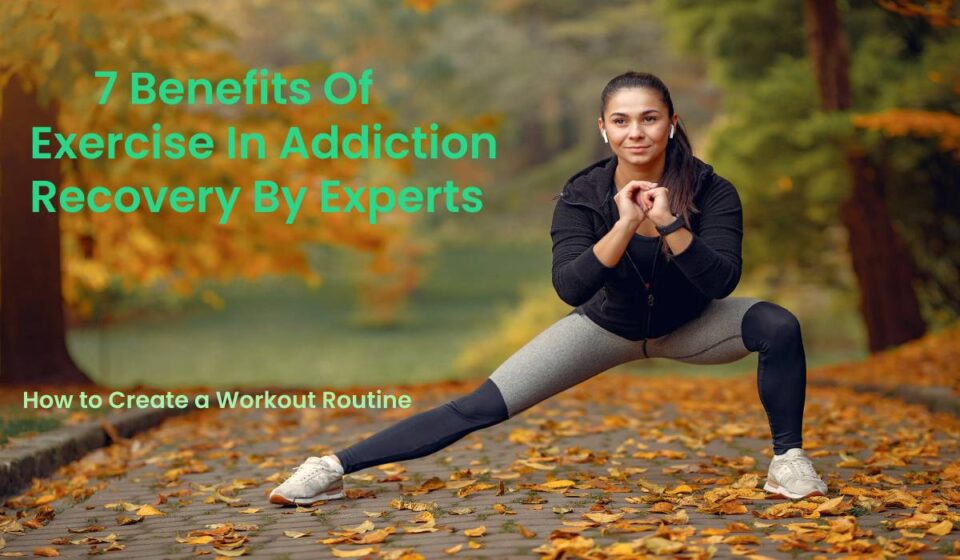Introduction to Exercise In Addiction Recovery
When someone is addicted to alcohol or drugs, they frequently forego vital occupational, interpersonal, and leisure activities in order to indulge in their addiction.
Table of Contents.
This is due to the fact that addiction is characterized by patterns of compulsive substance use, in which individuals begin to use drugs or alcohol despite the negative effects.
Despite knowing that drinking and using drugs can be harmful to one’s mental and physical health, many people continue to do so.
Being in recovery necessitates reconsidering your entire life philosophy, making the early recovery phases the ideal time to start an exercise routine.
Including physical activity in your daily routine has numerous health benefits for your body, mind, and soul, and it can certainly help you come out of drug addiction.
How to Create a Workout Routine
Creating a fitness regimen appears to be an easy task. Simply decide what you want to do and do it.
Unfortunately, as you are bombarded with various exercise options and recommendations from friends and professionals, the process may rapidly become overwhelming.
The stress of making the correct decisions may cause you to abandon your workout plan before it ever begins. Keep in mind that no one expects you to know everything about your new fitness routine, so it’s critical to set realistic expectations for yourself.
Exercise In Addiction Recovery
Consultation with a professional to design your program is a terrific place to start with your fitness regimen. First, consult your medical doctor to see if they have any concerns about your physical health or capacity to exercise. Then, if you have the funds and your doctor is okay, make an appointment with a personal trainer to go over workouts that are appropriate for you.
Exercise doesn’t need to be a lonely pastime. You can find new ways to keep accountable while motivating others by organizing or joining a group of people dedicated to physical fitness.
Remember that you might not find the ideal exercise routine right away. Experiment with several alternatives at various intensities and at multiple times of the day until you discover a fit that suits you.
Why Should You Include Exercise In Addiction Recovery?

When you include exercise in addiction recovery, your chances of getting better increase. You can see your life more clearly and commit to sobriety better, so let’s find out the top benefits of including nutrition and exercise in addiction recovery:
1: You Control Your Impulses
It can be challenging to deal with negative feelings in recovery without resorting to drugs or alcohol. Exercise can aid in the productive release of irritation and rage.
It’s advised to avoid aggressive team sports like hockey or football if you’re using exercise to manage anger and frustration.
The game’s inherent hostility may increase your emotional response. So instead, go for a run or lift some weights.
2: You Get A Natural High
If you’ve always been a couch potato. It may seem hard to believe, but exercise has been scientifically shown to give you a natural high.
Serotonin, dopamine, and endorphins are all increased by physical activity. These molecules improve your mood in the same way that drugs or alcohol do.
It also doesn’t matter how rigorous your workout routine is.
Even a short walk after supper can be beneficial, so start small and increase your physical activity as your strength and stamina improve.
3: Your Sleeping Habits Reform
Sleep problems are fairly widespread in today’s fast-paced environment. In addition, when the body is struggling to acclimatize to life without drugs and alcohol, insomnia can get worse.
Exercise on a regular basis will help you sleep better by balancing your circadian rhythms and burning off surplus energy. This will improve your mood as well as help the recovery of past substance misuse damage.
Aim for at least 150 minutes of exercise every week for the best results.
It’s recommended to exercise five to six hours before you plan on going to bed. This is the period after exercise when the body’s temperature decreases, making it simpler to fall asleep.
4: It Fills Up Your Time
Boredom is a major trigger for cravings when you’re in the early stages of recovery, so anything that keeps you busy can help.
Consider enrolling in a structured fitness class or making gym time a regular part of your daily routine for optimal effect.
If you have enough time on your hand, you may relapse to previous habits. But, if you exercise, you will have a structured life, and when you are not exercising, you will be tired and fall asleep easily.
5: Your Social Circle Expands
Making friends as an adult might be challenging. But if you exercise consistently, you may find it simpler to widen your social network.
If you’re lonely because you’re no longer associating with individuals who advocate bad lifestyle choices, joining a gym or participating in team sports is a terrific opportunity to meet new people.
If you’re nervous about approaching someone new, keep it basic and ask for pointers on how to improve your form or nutrition recommendations.
As you get to know one other, having a shared interest to lead your conversation will help break the ice.
6: Your Stress Quotient Reduces
Trying to balance jobs, family, friends, and recovery can be difficult at times. Because exercise is essentially meditation in motion, it is an effective natural stress reliever.
You can’t worry about difficulties in other aspects of your life. But, if you’re concentrating on shooting hoops, playing tennis, or learning new dance moves.
You’ll have a new perspective on what’s upsetting you after focusing entirely on your body’s movements for 30 minutes to an hour. The break from your problems will also prevent you from making hasty judgments that you may later regret.
7: You Cope With Mental Health Problems
If you have depression, anxiety, or any co-occurring mental disease, a regular workout program can help you feel better. Of course, working exercise won’t replace your prescription, but it may help you feel more like yourself again.
The mental health advantages of yoga have been thoroughly documented.
Yoga increases attention and relaxation by encouraging participants to focus on breathing and tune out distractions.
If you’re apprehensive about beginning yoga because you don’t think you’re flexible enough. Hence find a well-trained instructor who can help you adjust poses to accommodate a smaller range of motion.
Final Notes on Exercise In Addiction Recovery
There you go!
We have illustrated the top benefits of including exercise in your addiction recovery treatment approach.
So, include them in your treatment approach right now, and take one step towards a better future.


